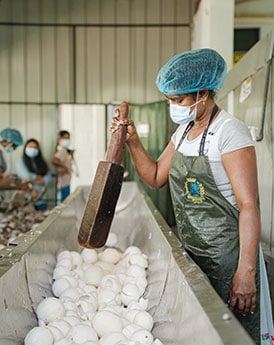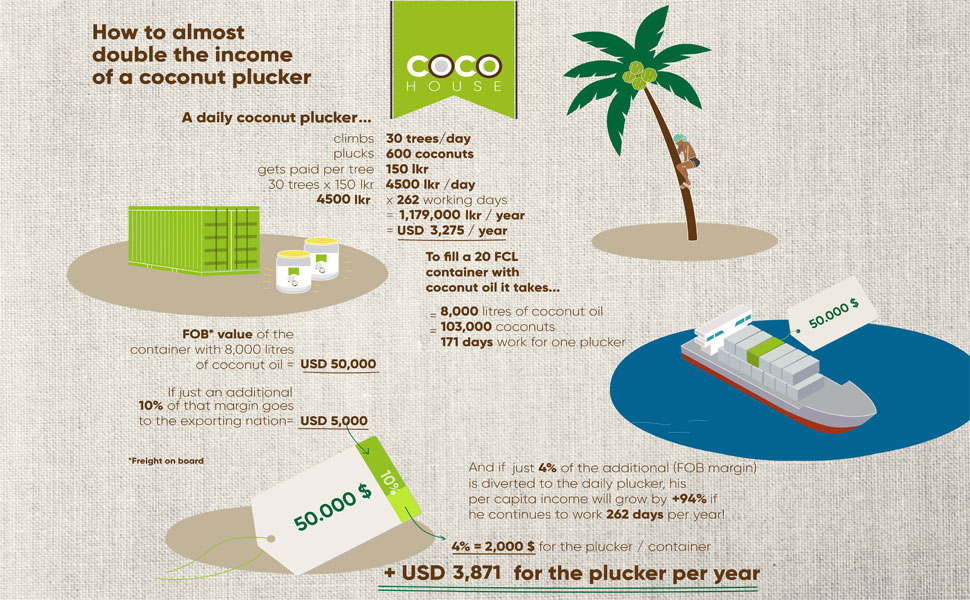As a globalized individual, myself, having lived in several countries growing up and befriending people from around the world, I do not entirely blame the importers of the multinational world for maximizing shareholder value and perhaps unwillingly squeezing the workers at the origin. Sri Lankan exporters of these products are just about content to have made a fair return on their investment, but have very little flexibility to increase wages of their workers and pay top dollar for their farming and supplier communities. This approach has been myopic and self-serving. Instead of emphasizing on the provenance and innovative aspects of authentic Sri Lankan agri-products, creating global Sri Lankan owned brands and uplifting all our communities through shared value just like France has done with wine, Switzerland has done with cheese and New Zealand has done with Manuka honey, we have allowed our products to be commoditized. Whereas, the multinational business owners have earned the lion share of the margin of these products through brand marketing and controlling market access.
This problem has been exacerbated by having a segmented supply chain. In some Sri Lankan agri-products such as spices, there are generally six parties – the grower, the processor, the packer/exporter, the brand owner/importer, the distributor and the retailer (offline and online). Almost always, the ones closest to the consumer have demanded the higher share of the retail margin through low transparency and, at times, cut throat negotiation tactics. To put salt to the wounds, the ones at the front end have even requested those upstream – exporters, processors and growers – to prove their ethical sourcing practices by incurring the costs for certifications such as “fair trade,” whilst increasing buying prices marginally or doing so only when the competitive forces allow for it. By duping the social conscious consumer into believing that their products are ethically sourced because of a certification, the private label brand importers, distributors and retailers have managed to keep an even higher share of the profits, whilst allowing very little to trickle down to those working upstream.
If there is a harvest issue in any given year or if the local exporters do not bend to demands on price, the multinational brand owner/importer looks to leave to another origin or plays the local exporters against each other in a downward spiraling price war. This has evidently been the case for the Sri Lankan garment industry, tea industry, cinnamon industry and the desiccated coconut industry. For example, although more than 50% of black tea globally consisted of Ceylon Tea fifty years ago, the multinational brand owners continuously reduced the Ceylon Tea portion of the blend overtime (now to around 5%) and increased the portion of other origins in order to control prices at the expense of quality. This has led to stagnation in the value held locally, and consistent plantation worker strikes.







